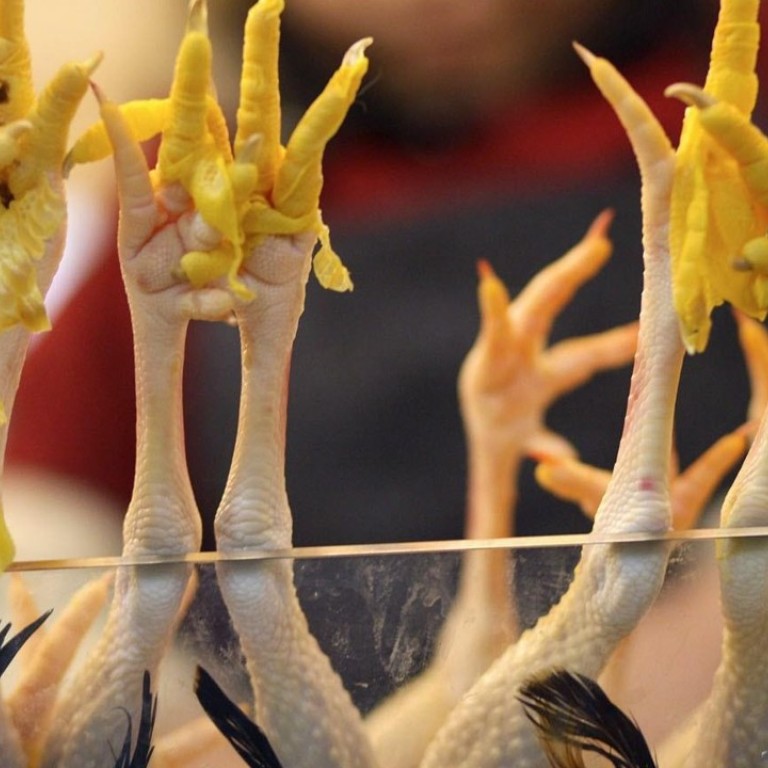
China’s importers of Brazilian chickens must pay deposits of up to 40pc under new anti-dumping measures
Commerce ministry intervenes after investigation finds growth in imports from Brazil and falling domestic prices have caused serious damage
China will impose temporary anti-dumping measures on Brazilian broiler chickens from June 9, the commerce ministry said on Friday, after finding in a preliminary ruling that its domestic industry has been substantially damaged by the imports.
Local firms buying broiler chickens – chickens bred for meat production – from Brazil will be required to pay deposits ranging from 18.8 per cent to 38.4 per cent of the value of their shipments, the ministry said in a statement. The measures cover products supplied by top Brazilian exporters JBS and BRF.
Brazil accounted for more than 50 per cent of broiler products supplied to China, the world’s second biggest poultry consumer, between 2013 and 2016, the commerce ministry said when it announced a probe of the imports last August.
“During the period of damage investigated, the quantity of imported products and market share from Brazil have continuously increased, and the prices of similar domestic products have been drastically reduced, causing serious damage to domestic industries,” the ministry said on Friday.
It added that despite a positive trend in some areas of the domestic industry, selling prices and profits fell, while stocks increased, with the industry losing money. Dumping is the practice of selling into a market at below market prices.
The findings and the anti-dumping measures will be another blow to Brazil and its poultry exporters, which are still recovering from the fallout of a food safety scandal.
Last month, top global chicken exporter BRF said rising grain prices and trade bans in key markets have stymied management efforts to return the company to profit.
The probe’s findings also come as the United States pushes to regain access to the Chinese poultry market as part of ongoing trade talks.
Analysts were not surprised by the decision, although noted that it was an initial ruling and could change.
Brazilian exporters should be able to absorb the impact, particularly for chicken feet, which would otherwise have no value, said Pan Chenjun, senior analyst at Rabobank.
“China is not the most important market (for Brazil), but in value it’s quite important as it takes all the by-products,” she said.
Of the 29 Brazilian companies named by the ministry, deposit rates on products from JBS and Seara Comercio de Alimentos are 18.8 per cent, BRF products have a deposit rate of 25.3 per cent, and shipments from C.Vale Cooperativa Agroindustrial will be charged at 38.4 per cent. Imports from all other unspecified producers will also be hit with the highest rate.
Pan expected importers to negotiate with suppliers to share the deposit fees.
Broiler prices in China have significantly recovered since last year, when they fell to decade lows after hundreds of people died from contracting the H7N9 bird flu virus.
Farmgate prices – the prices for sale of farm produce direct from the producer, excluding transport and other charges – for live chickens in eastern Shandong province, China’s biggest producing region, are around 8 yuan ($1.25) per kg, up substantially from last year’s low of 3.5 yuan per kg.
Li Jinghui, managing director of the China Poultry Association, declined to comment on the news. An official at the China Animal Agriculture Association also declined to comment.
JBS and BRF representatives in China could not be reached.
It is not clear what will happen to shipments already on their way to China. An anti-dumping deposit levied on sorghum from the US in April caused chaos in the grains trade, with dozens of cargoes stranded as importers tried to resell to other markets to avoid paying the tariffs.

